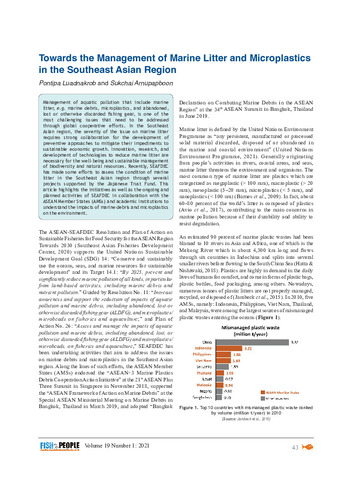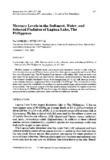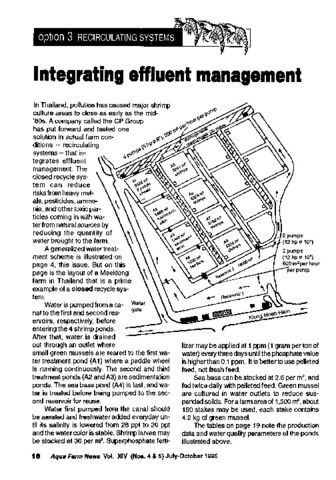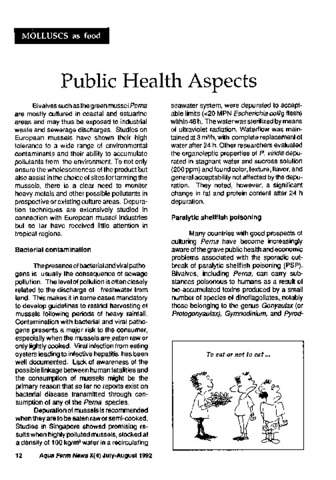Towards the management of marine litter and microplastics in the Southeast Asian Region
Share
抄録
Management of aquatic pollution that include marine litter, e.g. marine debris, microplastics, and abandoned, lost or otherwise discarded fishing gear, is one of the most challenging issues that need to be addressed through global cooperative efforts. In the Southeast Asian region, the severity of the issue on marine litter requires strong collaboration for the development of preventive approaches to mitigate their impediments to sustainable economic growth. Innovation, research, and development of technologies to reduce marine litter are necessary for the well-being and sustainable management of biodiversity and natural resources. Recently, SEAFDEC has made some efforts to assess the condition of marine litter in the Southeast Asian region through several projects supported by the Japanese Trust Fund. This article highlights the initiatives as well as the ongoing and planned activities of SEAFDEC in collaboration with the ASEAN Member States (AMSs) and academic institutions to understand the impacts of marine debris and microplastics on the environment.
Suggested Citation
Luadnakrob, P., & Arnupapboon, S. (2021). Towards the management of marine litter and microplastics in the Southeast Asian Region. Fish for the People , 19(1), 43-47. http://hdl.handle.net/20.500.12066/6670
主題
Collections
Related items
Showing items related by title, author, creator and subject.
-
Mercury levels in the sediment, water, and selected finfishes of Laguna Lake, the Philippines
Cuvin-Aralar, Maria Lourdes A. (Elsevier, 1990)Monthly samples of sediment, water and commercially important species of fish, primarily Oreochromis niloticus and Chanos chanos , plus a few other species, were collected from the West Bay area of Laguna Lake, The Philippines ... -
Integrating effluent management
Southeast Asian Fisheries Development Center, Aquaculture Department (Aquaculture Department, Southeast Asian Fisheries Development Center, 1996)The paper discusses a closed recycle shrimp farm in Thailand which integrates effluent management. The closed recycle system can reduce risk of heavy metals, pesticides, ammonia, and other toxic particles coming in with ... -
Public health aspects: Molluscs as food
Castaños, Milagros T.; Southeast Asian Fisheries Development Center, Aquaculture Department (Aquaculture Department, Southeast Asian Fisheries Development Center, 1992)






